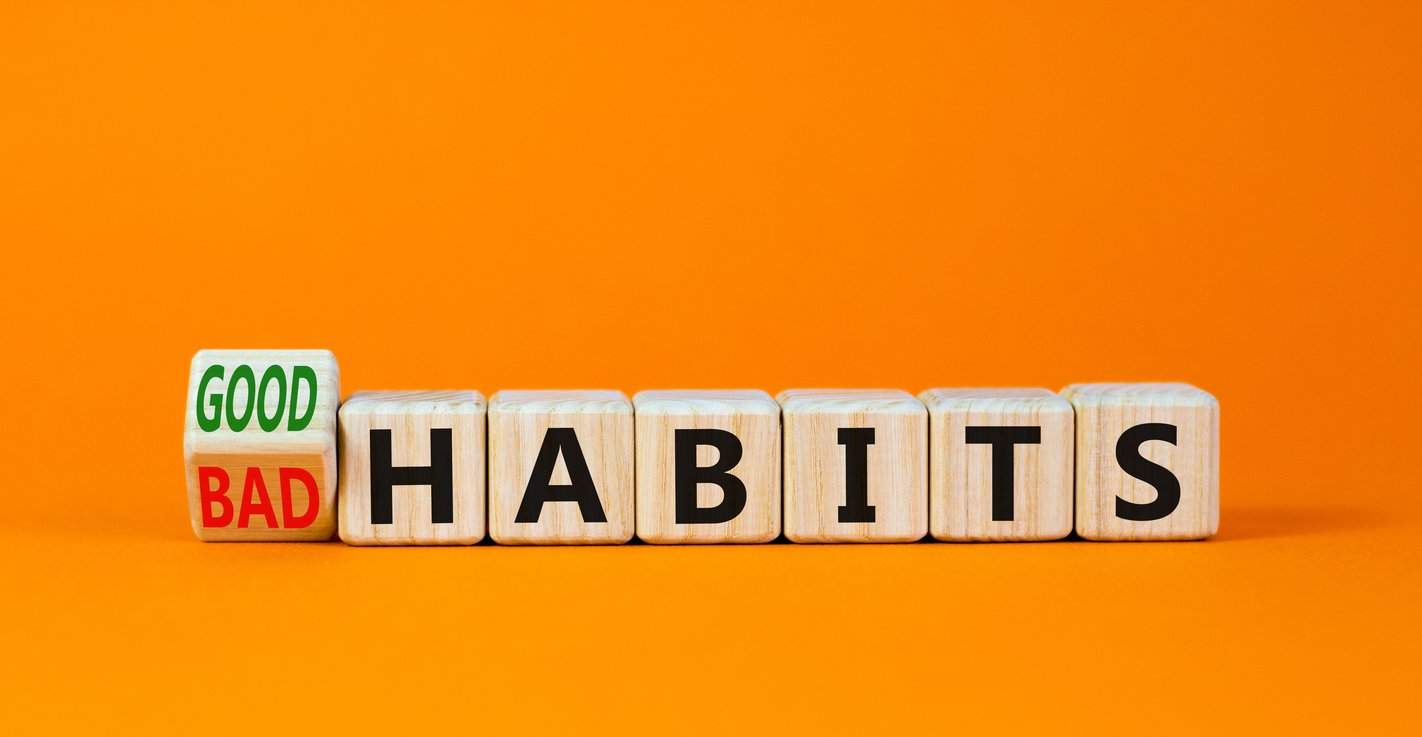
We’re all familiar with bad habits. They’re habits we form that have adverse effects on our mental and physical health. We know we shouldn’t give in to the behaviour, but we keep doing it, leading us to question ourselves and why the habit formed in the first place. Read on as we explore this frustration and how the mental health impacts of our bad habits can empower ourselves to change our behaviour.
Why Do We Develop Bad Habits?
We all have habits we’d love to break free from to be the best, healthiest versions of ourselves. But this is easier said than done. Even when we see the science and the healthcare experts telling us why it’s important not to engage in certain habits, we still succumb to the habit we’re attempting to eliminate or unintentionally form a habit that doesn’t serve our overall well-being.
So, why do we do this to ourselves? Because of how our brains operate. When we engage in an activity that makes us feel good — even if it’s not good for us — our brains receive a dopamine reward. This triggers a desire to get more of that feeling again.
Whenever we give in to that impulse telling us to have another slice of cake, to check our phones again, or whatever behaviour initially stimulated that good feeling, we are compelled to engage in the activity even more. The repetition of that one small behaviour begins forming a habit.
This means that everything from checking social media to trying to find the best slots games to indulging in our favourite sweet and salty treats can potentially lead to the formation of a bad habit.
According to registered psychotherapist Natacha Duke at Cleveland Clinic Canada, “We’re also more likely to engage in ‘bad’ habits when we’re feeling stressed, lonely, sad, depressed, or any other feeling that is difficult for us to tolerate.” Unfortunately, this natural tendency tends to result in unhealthy coping mechanisms that further harm our mental health.
How Do Bad Habits Affect Our Mental Health?
Frequently, we do not realise we’ve formed a bad habit until it starts to negatively affect us. The impacts we experience after the dopamine surge subsides can take a toll on our mental health in numerous ways.
Perhaps it’s the feeling of guilt or shame for doing something we know we shouldn’t, engaging in negative self-talk due to our habit, or being unable to concentrate due to insufficient sleep or poor nutrition.
Each of these impacts our mental health and can form a negative cycle that leads our habits to become compulsive, which can be extremely challenging to overcome. In other words, it makes the habits even more difficult to shed.
Thankfully, however, even when we develop a bad habit, there are techniques we can use to overcome it.
What Can We Do to Improve Our Habits and Our Health?
The techniques that mental health professionals share through organisations such as BetterHelp, NIH (National Institutes of Health), and Cleveland Clinic can help us change our habits and improve our mental health. Below are several helpful methods we can implement, whether we decide to use one or all.
Identifying Our Bad Habits and Triggers
By identifying the habits that are taking a toll on our mental health, we can understand why we have them and learn how to work around them. This includes identifying triggers to avoid them, such as avoiding areas where we typically smoke while trying to quit.
Exercising Our Willpower Muscle
Our mental willpower, or our capability to resist the temptation of a habit, is often compared to a muscle. Mental health experts suggest that the more we use it, the stronger it gets. When we encounter triggers or situations that have us turning to one of our habits, they present opportunities to exercise and strengthen the muscle—even during a minor encounter with a trigger.
Replacing Our Bad Habit
At times, finding an alternative habit for the one we’re trying to break can be effective. Consider adding a habit that supports your mental or physical health, such as journaling, meditation, or exercise.
Getting Support
Speaking with a professional or a support group can help us stay motivated to change our behaviour. It can also help us work through the negative mental health aspects associated with our bad habits. This approach may be particularly beneficial when a habit has become a compulsion or addiction.
Giving Ourselves Time and Patience
When breaking a habit, especially one that has become compulsive or addictive, Dr. Nora Volkow, director of NIH’s National Institute on Drug Abuse, says that the solution is “not one size fits all.” This is important to keep in mind.
We may have to experiment with different methods or even combinations of methods to improve our habits and, ultimately, our health. To do this, we have to give ourselves the time we need to find what will work for us. We also need to be patient with ourselves if we don’t immediately see the behaviour change we want.
Conclusion
Bad habits are frustrating and can have serious ramifications on our mental health. However, they are a widespread and deeply human experience. Understanding how and why we form bad habits can help us address our behaviours to care for our well-being and improve our overall quality of life to achieve our desired lifestyle.
This article is part of the HealthManagement.org Point-of-View Programme.





